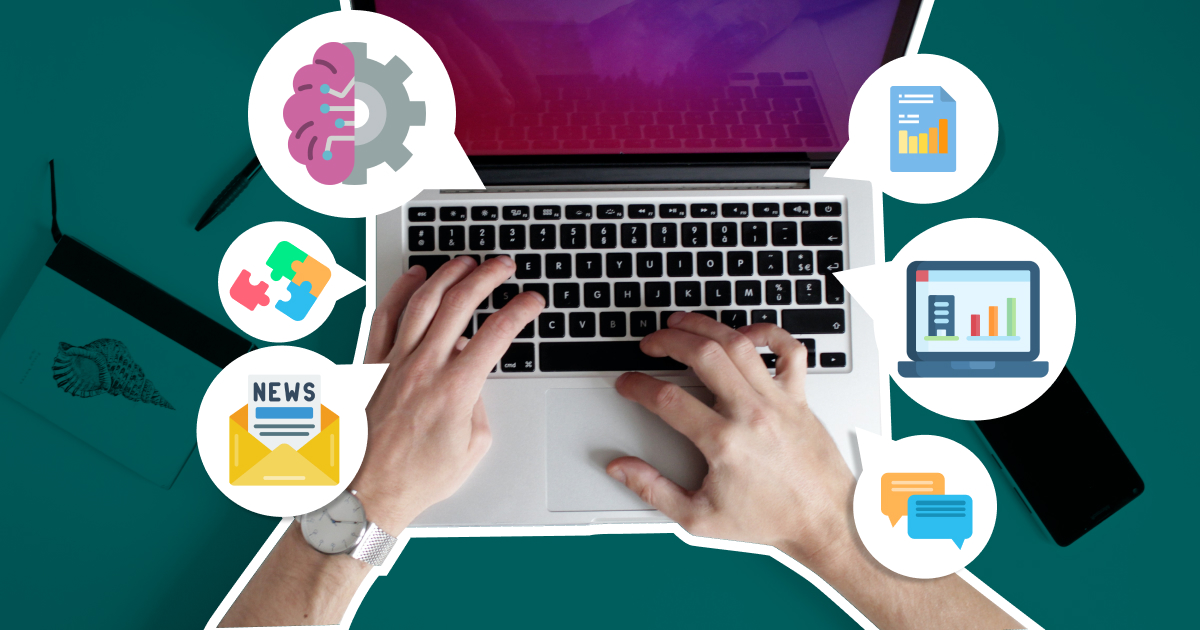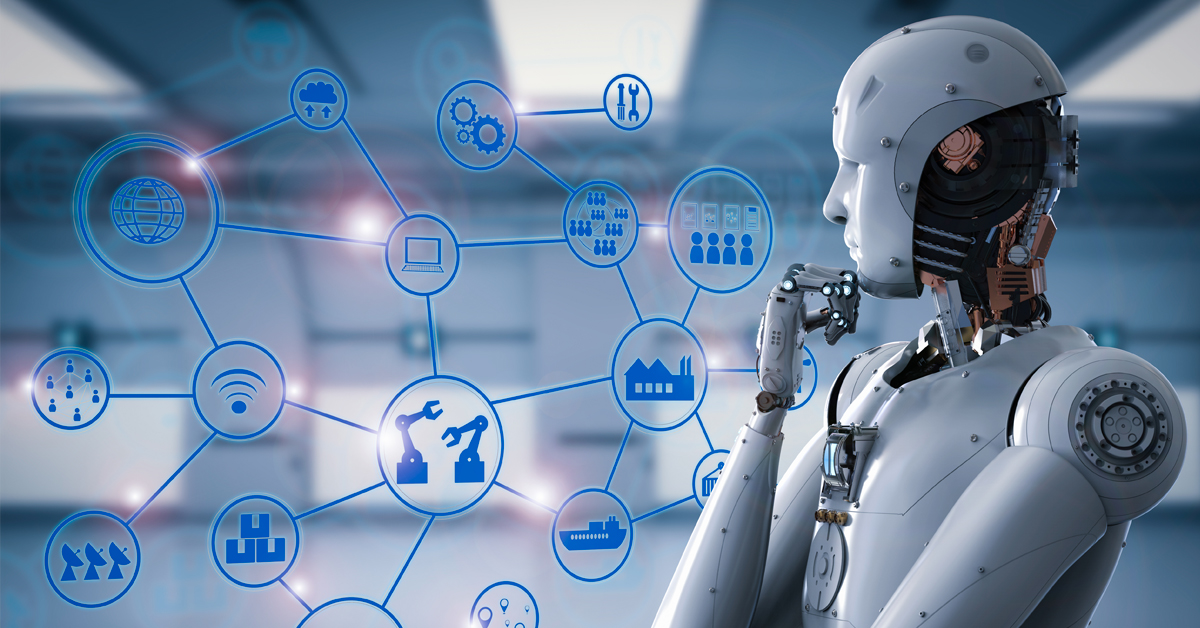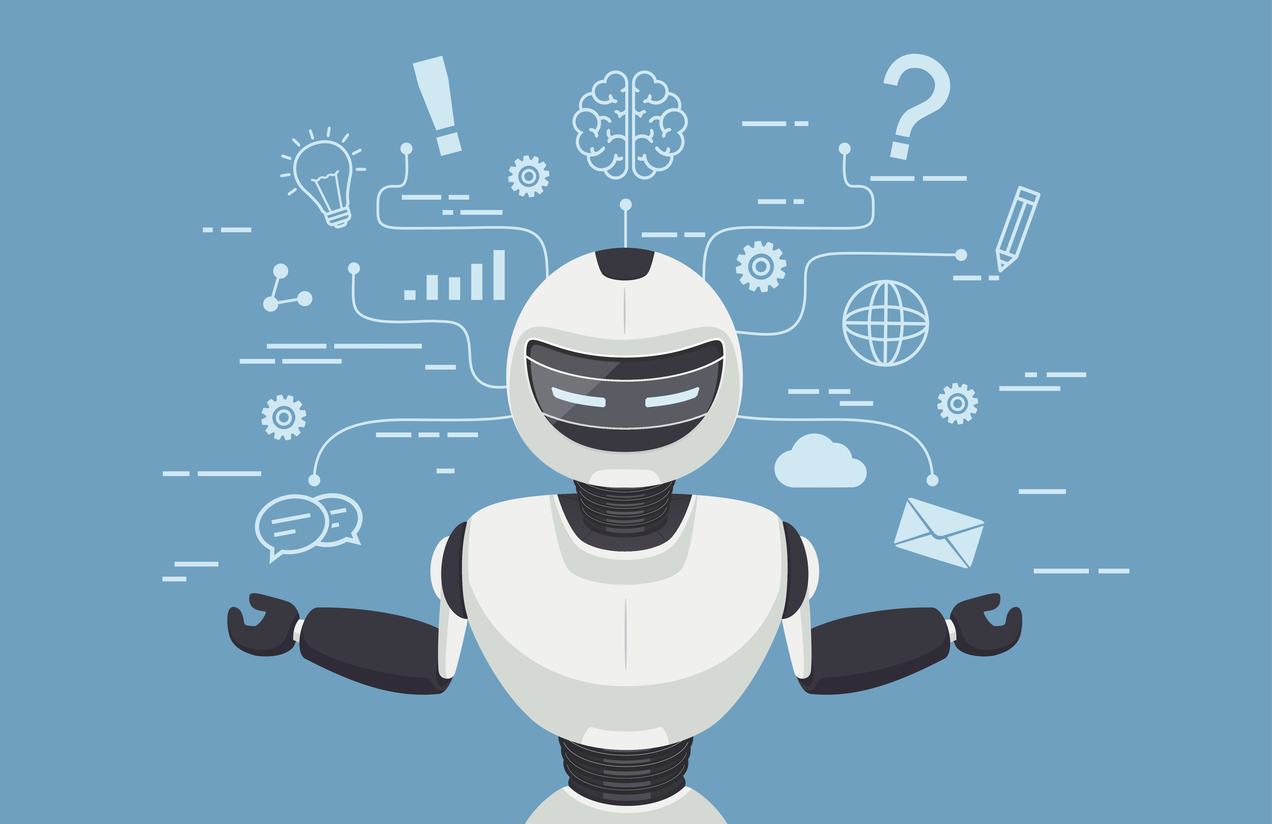Marketers nowadays are constantly seeking innovative methods to locate and attract their target audience.
However, in today's fast-paced and ever-changing digital marketing world, it's becoming increasingly difficult to contact your target audience and obtain results.
Enter AI in marketing.
Many businesses, as well as the marketing teams that support them, are increasingly using intelligent technology solutions to increase operational efficiency while improving the customer experience.
Marketers may acquire a more nuanced, complete picture of their target consumers by using these platforms.
The information gained from this method may then be leveraged to increase conversions while also reducing the effort of marketing staff.
What Is Artificial Intelligence Marketing?
Artificial intelligence marketing (AI Marketing) is a technique for predicting your client's next step and improving the customer journey by integrating customer data and AI principles such as machine learning.
Artificial intelligence marketing makes automated judgments based on data collecting, data analysis, and further observations of audience or economic trends that may affect marketing activities.
AI is frequently utilized in marketing initiatives where speed is critical.
AI solutions employ data and consumer profiles to understand how toeffectively engage with clients, then offer them personalized messages at the correct moment without human intervention, guaranteeing optimal productivity.
Many modern marketers employ AI to supplement marketing teams or to execute more tactical activities that require less human finesse.
Core Concepts Of AI In Marketing
Every day, technology evolves.
A lot may change in a few years, especially in the case of trending artificial intelligence technology.
The same is true for artificial intelligence in marketing applications.
AI can help firms become more productive by automating projects.
According to Accenture, using AI may increase corporate efficiency by 40 percent.
This not only saves time and moneybut also allows your firm to focus on creating better experiences for consumers rather than wasting time transferring items from one spreadsheet to another.
AI may also aid in the reduction of mistakes in marketing operations.
So long as supervision and instruction are there, artificial intelligence can execute specialized jobs more efficiently than humans.
Human error was often engaged in setting up the AI program with adequate data or it was utilized in a way that was not intended on occasions when AI failed to give the desired outcomes.
Because AI may significantly accelerate the process of marketing campaigns, cut costs, and enhance efficiency, it is far more likely to result in a higher return on investment (ROI).
Components Of AI In Marketing
The following AI in marketing components comprise today's leading solutions for bridging the gap between massive volumes of consumer data being collected and actionable next actions that can be used in future campaigns:
Machine Learning
Machine learning is powered by artificial intelligence and incorporates computer algorithms that can examine data and learn on their own.
Machine learning devices examine new information in the context of relevant previous data, which might advise judgments based on what has or has not worked in the past.
Big Data And Analytics
The rise of digital media has resulted in a flood of big data, allowing marketers to better evaluate their efforts and precisely allocate value across channels.
This has also resulted in data oversaturation, as many marketers struggle to discern which data sets are worthwhile to acquire.
AI Platform Solutions
Effective AI-powered solutions give marketers a centralized platform for handling massive volumes of data.
These platforms may generate valuable marketing knowledge about your target audience, allowing you to make data-driven decisions about how to effectively approach them.
Benefits Of Leveraging Artificial Intelligence (AI) In Marketing
Increased Campaign ROI
Marketers can utilize AI to alter their whole marketing campaign if they use it right, pulling the most useful insights from their datasets and acting on them in real-time.
AI tools can make quick judgments on how to best spend expenditures across media channels or assess the most successful ad placements to engage customers more consistently and get the most out of campaigns.
Enhanced Marketing Measurement
Many organizations struggle to keep up with all of the data generated by digital efforts, making it difficult to attribute success to individual initiatives.
AI-powered dashboards provide a more thorough perspective of what is working so that it can be repeated across channels and moneyallocated accordingly.
Make Decisions Faster
AI in marketing can do tactical data analysis quicker than humans and utilize machine learning to get quick conclusions depending on marketing and consumer context.
This allows team members to devote more time to strategic projects, which can subsequently be used to guide AI-enabled marketing.
Marketers may utilize real-time data to make smarter media selections instead of waiting until the conclusion of a campaign with AI.
Examples Of AI In Marketing
Search Engines
AI has been used by Google and Bing for many years. Google introduced RankBrain in 2015, which employs machine learning to give more relevant search results.
Bing launched Intelligent Search in 2017 to deliver more complete responses and pictures to user searches.
Semantic search and natural-language processing assist users in finding more relevant material on search engineresults pages, even when their searches are misspelled or wide.
Email Personalization
Personalization of email marketingcan be aided by artificial intelligence.
AI in marketing gives advertisers helpful information and leverages historical subscriber behavioral data to produce more focused and relevant communications.
Marketers may utilize NLP technology in the email to modify the following:
- Calls to action, subject lines, and body copy
- Product suggestions
- Workflows for email automation
- Drip marketing campaigns
Chatbots
Chatbots utilize NLP to simulate human discussions using text.
They simplify conversations, offer 24/7 coverage, and free up time for social mediaand community managersto focus on more complex discussions.
Chatbots may assist marketers in the following ways:
- Make specified material available to users.
- Help with customer service
- Create new leads
Product Pricing
Dynamic pricingbased on AI is becoming a science.
Companies use data to evaluate demand and competition, and then use that information to impact pricing in real-time.
This system can also utilize data to predict how much a buyer is willing to spend on a product.
With this knowledge, AI in marketing may compare a retailer's price to that of its competitors to see where they stand.
Their third-party merchants frequently compete using algorithmic pricing, allowing buyers to get the best deal.
Recommendation Engines
From Amazon to Netflix, AI-powered suggestions are ubiquitous.
Predictive algorithms can provide contentand product recommendations based on a combination of prior user behavior and personal preferences.
AI may also help retailers save time by removing choice fatigue and the need to manually scan through product pages.
People Also Ask
What Does AI Stand For In Marketing?
In marketing, artificial intelligence (AI) is the process of using data models, mathematics, and algorithms to develop insights that marketers can exploit.
Marketers will employ AI-derived insights to drive future campaign expenditure, strategy, and content subject selections.
How AI Will Affect Marketing?
AI can increase consumer personalization and precision in ways that were not before possible by assisting marketers with data collection, identifying new customer categories, and creating a more unified marketing and analytics system.
What Is AI In Digital Marketing?
AI can construct simulation models and customize shopping processes by making suggestions based on machine learning technologies and interacting with virtual assistants.
Many companies are using artificial intelligence to communicate with their consumers.
Is AI Good For Marketing?
AI assists marketers in better understanding their clients and improving their customer experiences.
AI-powered marketing allows marketers to construct a predictive customer analysis and design more focused and individually customized customer journeys, effectively increasing ROI on each customer encounter.
Conclusion
The need for individualized consumer experiences and the type of marketing materials will develop in tandem with the expansion of the offer for consumers and the expanding options of making contact with them.
That is why we believe AI will be with us for many years to come.
Finally, the importance of AI in marketing technology will be defined by creativity and innovation.
Combining diverse technologies can result in organizations outperforming other market leaders for years.
Understanding what is already in use is essential for bringing your firm up to speed and being relevant and competitive in the market.


